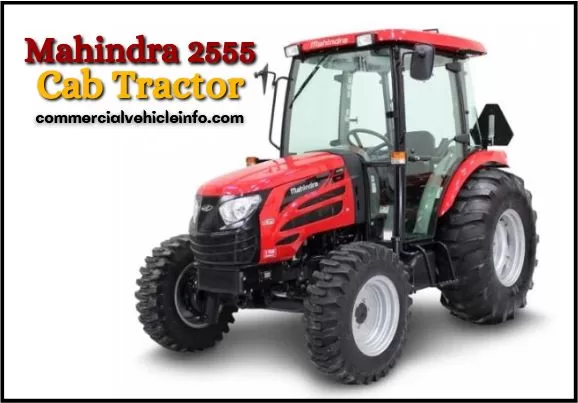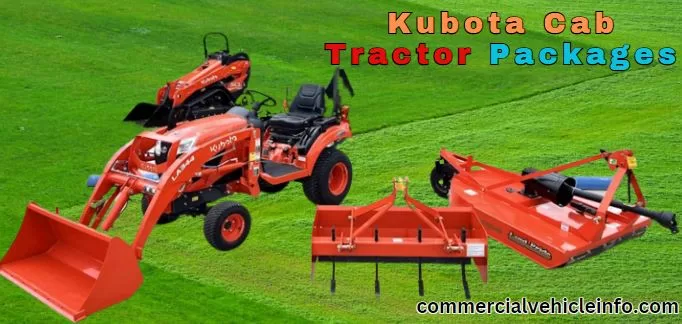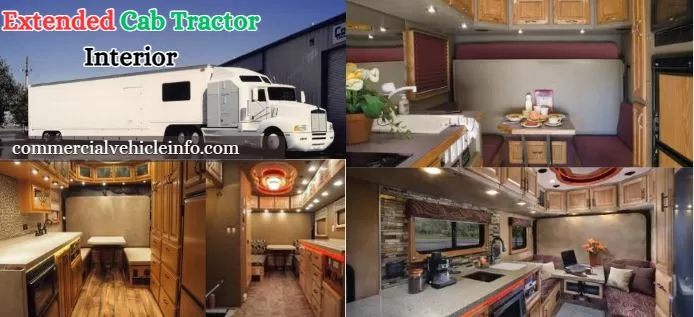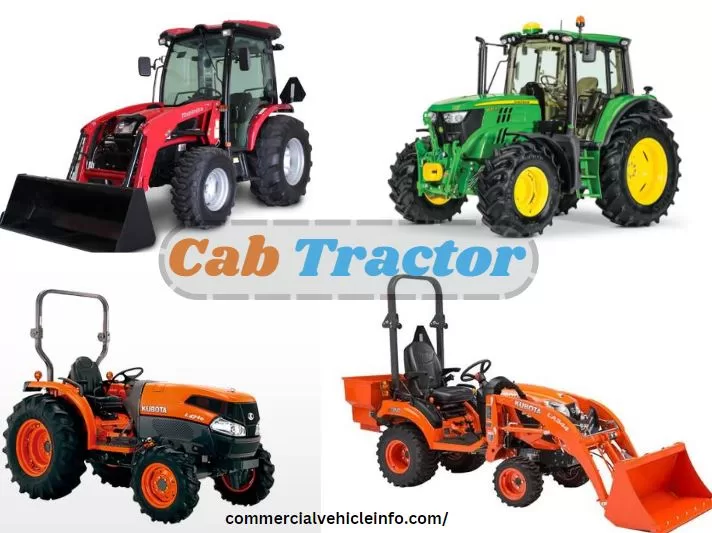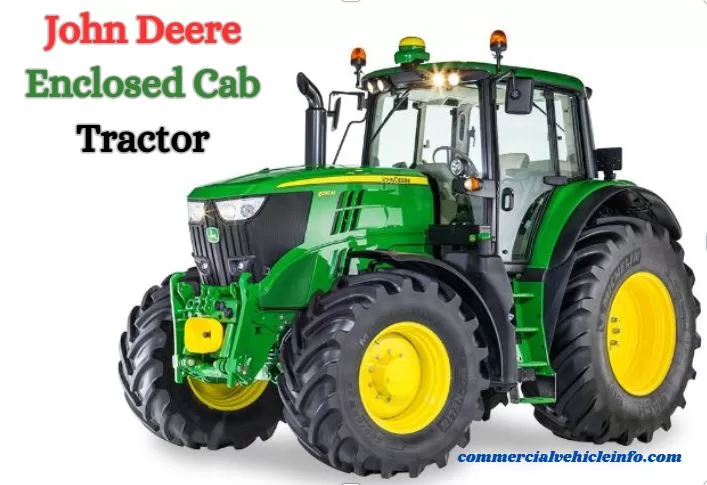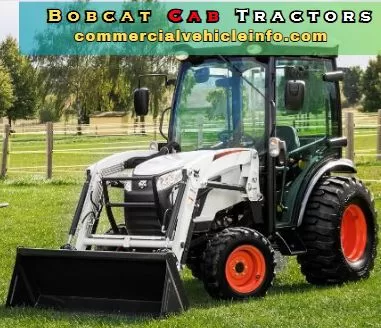In the modern world of agriculture and heavy-duty work, the cab tractor has emerged as an innovative technology that has changed the way workers and farmers tackle their jobs.
These specially-designed vehicles, outfitted with comfortable cabins and modern technology, have a myriad of advantages that help streamline operations and boost productivity. However, just like all technology they also have certain drawbacks which must be assessed.
In this look at cab tractors, we’ll explore the many benefits and drawbacks associated with these machines that are powerful, and shed some light on how they affect the efficiency of a person’s life, their well-being as well as the general practices in agriculture.
No matter if you’re an experienced farmer, an avid agriculturalist, or just curious about the development of machinery knowing the benefits and disadvantages of cab tractors is vital to making educated decisions regarding their installation and their use.
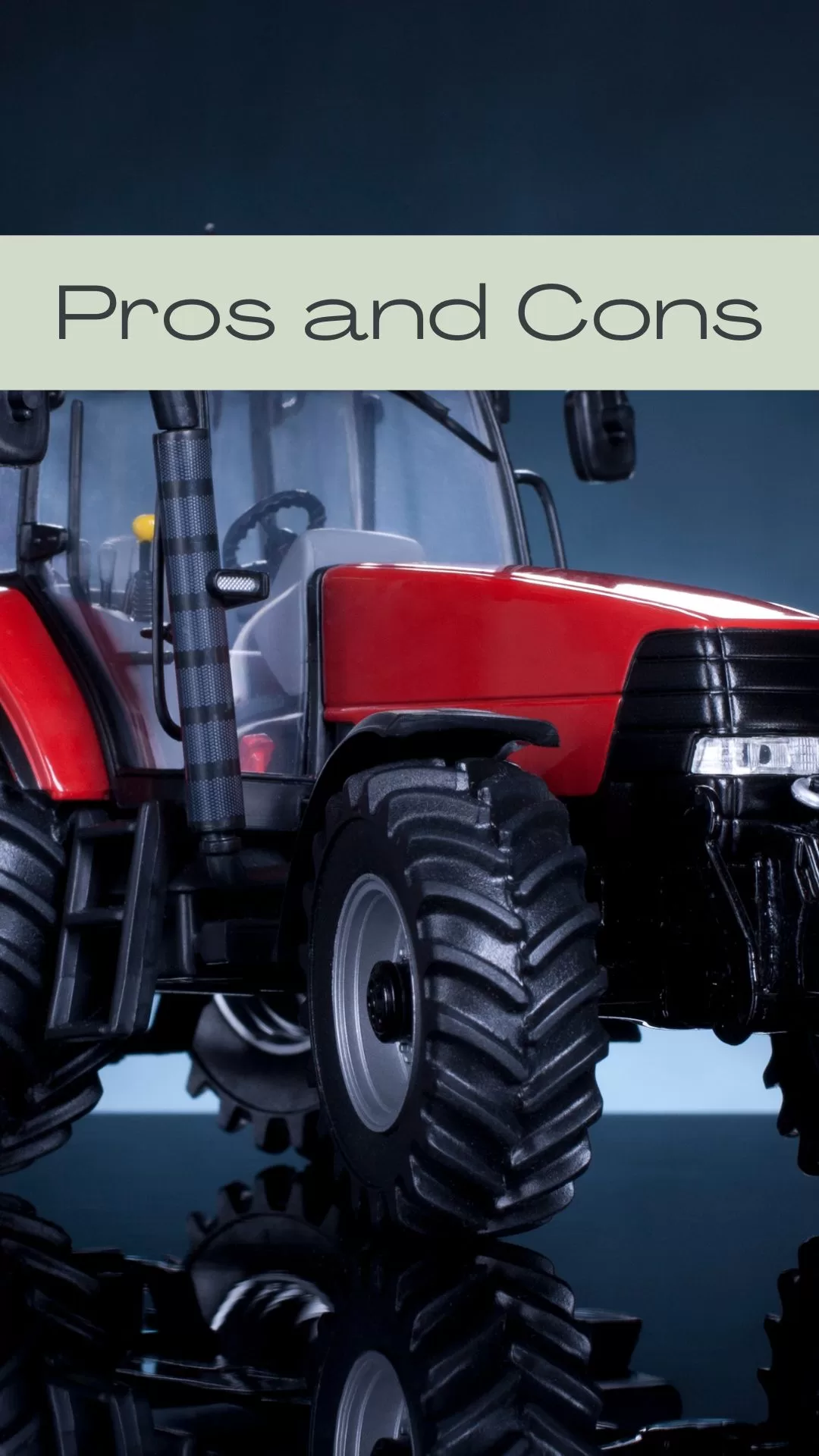
Pros And Cons Of A Cab Tractor
Cab tractors, which have enclosed compartments for the driver, have revolutionized agriculture in the modern age and are suited for heavy-duty work.
These vehicles are specialized and offer many benefits that make operations more efficient and improve productivity, but they also have certain negatives that need to be considered.
In this article we’ll look at the advantages and disadvantages of cab tractors, giving an understanding of their effects on efficiency, the well-being of the operator as well as general agricultural practices.
Pros:
- Operator Safety and Comfort: One of the greatest benefits of contractors is the increased security and comfort they offer to their operators. The enclosed cabin provides protection to drivers from harsh weather conditions dust, noise, and even hazardous chemicals. This improves the environment, which results in decreased fatigue, better concentration, and, ultimately, safer working conditions.
- All-Weather Operations: Cab tractors permit workers to function in a range of weather conditions such as extreme heat, rain, or even cold. This versatility extends the amount of time that can be used for tasks like planting, cultivating, or harvesting, which results in increased efficiency overall.
- Modern Technology Integration: Modern tractor cabs are fitted with the latest technology, like GPS navigation as well as precision farming systems, and automatic controls. These features increase the precision of tasks like fertilizing, planting, and spraying, leading to efficient use of resources and less waste.
- Reducing Noise Exposition Inside the enclosed cabins of cab-tractor reduces the level of noise that is that operators experience, leading to better hearing health as well as an improved working environment. This is particularly important when working for long periods of time.
- Increased Productivity of Operators: The convenience and comfort offered by contractors allow operators to work for longer periods without exerting a significant physical strain. The extended operating time could increase productivity during the most critical seasons of farming.
Cons:
- More expensive Initial Cost Tractors with cabs typically are more expensive upfront price than open-cabin counterparts. The cost of buying and maintaining equipment equipped with cabs could be a financial burden for small farms or farming companies.
- Maintaining Complexity A cabin enclosed creates an additional layer of complicated repair and maintenance. Accessing cabin components could require specific tools and skills, which could result in higher maintenance costs and a longer time to repair.
- Reduced visibility: The enclosed cabin structure may limit the view of the driver particularly when operating within tight spaces or during certain tasks that require precise navigation. This can increase the chance of accidents or errors.
- Climate Control Energy Consumption: While cab tractors offer protection against weather conditions keeping a temperature in check inside the cabin is a requirement for the use of energy. This could result in a higher cost of fuel, particularly during long-term operations.
- Operator Disconnection Staying for long periods in a closed cabin could result in a feeling of disconnect from the earth and the agricultural environment. The loss of connection could affect the operator’s knowledge of the soil’s conditions, the health of crops, and other vital information on the field.
Pros And Cons Of A Cab Tractor
Advantages of a cab tractor:
-
Comfort: Cab tractors are way more comfy to drive than open ones. The cab shields the driver from the sun, rain, wind, dust, and noise. Plus, it keeps the inside temperature just right, which is super helpful in extreme weather.
-
Safety: Cab tractors are safer because the cab keeps the driver safe from things like flying stuff, rollovers, and other dangers.
-
Productivity: Cab tractors can help drivers get more work done. The cab gives a nice and controlled workspace, so drivers can concentrate and stay fresh.
-
Resale value: Cab tractors usually sell for more money when you want to get rid of them.
Disadvantages of a cab tractor:
-
Cost: Cab tractors cost more than the open ones.
-
Maintenance: Cab tractors need more fixing up compared to open tractors because the cab has extra stuff like air conditioning and heating that can break.
-
Size: Cab tractors are usually bigger and heavier than open ones, which can make them harder to move in tight spots.
Conclusion
A cab tractor is an investment worth it for those who operate in all climates and require an environment that is comfortable for working. The cab offers protection from the elements.
It also provides as well as insect and pest protection, as well as less the amount of noise. Cab tractors also offer more storage space, which can be advantageous for people with few storage options. However, they tend to be more costly than open station models as the higher size of the cab could cause storage issues.
Certain people may find it difficult to breathe in the small area of a cab tractor as well as the addition of air conditioning may take additional power generated by the engine.
In the end, it’s essential to evaluate both the advantages and disadvantages in order to determine if a cab tractor is the right option to meet your requirements budget, needs, and conditions.
For more details visit the commercialvehicleinfo.com
Pros And Cons Of A Cab Tractor FAQ
A cab tractor is a tractor that has an enclosed cab for the operator to sit in while operating the tractor.
The advantages of owning a cab tractor include protection from the elements, insect and pest protection, comfortable working conditions, reduced noise exposure, and increased storage space.
The disadvantages of owning a cab tractor include higher cost, limited overhead clearance, potential claustrophobia, foggy windows, and AC consumption of horsepower.
Cab tractors tend to be more expensive than their open station counterparts
Yes, a cab tractor can be used in various weather conditions, providing protection from the sun, dust, snow, and rain.
Yes, the cab can shield the operator from pesky mosquitoes, dangerous bees, and seasonal insects that bite or sting.
Yes, cab tractors can be equipped with interior air conditioners and heaters, allowing the operator to stay cool in the summer and warm in the winter.
Yes, the cab can help reduce noise levels by containing and dampening sound, providing a quieter working environment.
Yes, cab tractors are typically taller than standard storage spaces and garages, providing additional storage capacity.
Yes, the increased height of cab tractors can lead to storage problems, as standard storage spaces and garages may not accommodate their height.

